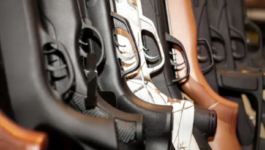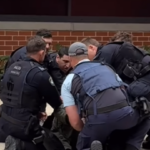Firearm Suppression Orders and Firearm Prohibition Orders in New South Wales

The year 2021 marked the 25th ‘anniversary’ of the Port Arthur Massacre – the day Martin Bryant killed 35 people and left 18 people injured in a mass shooting undertaken with a gun he bought without a license.
It was a day that shocked Australia, and changed the course of history in many ways.
New firearm laws
At the time, newly minted Prime Minister John Howard was so intent that such a tragedy should never happen again, that he implemented, very quickly, a range of new firearm control laws in Australia.
While these laws are enacted on a state and territory basis, Prime Minister Howard elicited co-operation and unity from the states and territories that laws would be uniform across the nation through three important agreements:
- National Firearms Agreement (1996)
- National Firearm Trafficking Policy Agreement (2002)
- National Handgun Control Agreement (2002).
In New South Wales, firearms are regulated under two primary pieces of legislation – the NSW Firearms Act 1996 and the Weapons Prohibition Act 1998.
Fast forward to 2014, and the Lindt Cafe siege in Sydney, which occurred at a time when the world was gripped by the threat of terrorism following the September 11 attacks on the World Trade Centre in 2001.
After the Lindt Cafe siege, firearm laws were put firmly into the spotlight again in our nation.
Changes made to Australia’s firearm laws over time have occasionally been controversial, but they have also made Australia the envy of many other countries, because firearn ownership is highly regulated.
We have had no mass shootings in Australia on the scale of Port Arthur since1996.
About 3.5 million Australians own firearms. These items are rarely used in street fights and, in fact, many recent killings with the use of firearms in Australia have been carried out by police officers, most of whom carry both lethal and non-lethal weapons as part of their normal duties.
Domestic violence and firearms
Sadly, firearms have been a hallmark of numerous domestic violence killings across the nation, despite the fact that under the law, a firearms licence or prohibited weapon permit must be suspended if a person is charged with a domestic violence offence or if there is reasonable cause to suspect a person may make a threat or commit an domestic violence offence, as outlined in the definitions and explanations within the Crimes (Domestic and Personal Violence) Act 2007.
Similarly, a firearms licence or prohibited weapon permit is automatically suspended if the holder becomes subject to an Apprehended Violence Order.
Once the suspension is in place, a person must not possess or use firearms/prohibited weapons until the term has expired.
Firearms Suppression Order
Within the NSW legislation police have the power to request a Firearms Suppression Order, which can be made by the New South Wales Police Commissioner at any time.
It prohibits a person from bearing a firearm, firearm parts, or ammunition on the basis that it is not in the public interest for the person to do so.
For example, recently, a man who made online threats to Brittany Higgins, her partner and her dog (and had a history of previous online threats), was made subject to a firearms suppression order.
Section 25 of the Firearms Act 1996 (NSW) requires a firearms licence holder to immediately surrender their firearms and their firearms licence to police if their licence is suspended, revoked or otherwise is no longer in force. The maximum penalty for failing to do so is 2 years imprisonment and/or a $5,500 fine.
It also states that a police officer is authorised to seize any firearm in the possession of a person if that person’s licence is suspended, revoked or otherwise ceases to be in force. A police officer is also authorised to seize the licence itself.
‘A firearms ban’ is another way of saying ‘suspension’ or ‘temporary cessation’ of a firearms’ licence. The Police Commissioner can apply for an order whether or not someone already has a firearm licence. If they don’t have a licence, the commissioner’s order would therefore mean that a person would not have a gun license application accepted or processed.
In Australia, you need a license to purchase a firearm, and carry a firearm, and in order to obtain that licence you need an appropriate reason for needing / wanting a gun.
Firearms Prohibition Order
Similarly the New South Wales Police Commissioner has the power to enact a Firearms Prohibition Order (FPO), outlined in Section 74 of the Act.
Any police officer, of any rank, can nominate a subject for a Firearm’s Possession Order (FPO) as can staff at the New South Wales Firearms Registry and there is no set criteria for this, beyond a concern for the safety of others.
Typically, this would be somewhat determined by a person’s criminal history, or the presence of mental illness, but it doesn’t have to be, and of course, there are concerns around the broad powers given to police under this section, particularly because the penalties are very severe.
Under Section 74A of the Firearms Act 1996 (NSW) a police officer may:
(a) Detain a person who is subject to a firearm prohibition order, or
(b) Enter any premises occupied by or under the control or management of such a person, or
(c) Stop and detain any vehicle, vessel or aircraft occupied by or under the control or management of such a person, and conduct a search of the person, or of the premises, vehicle, vessel or aircraft, for any firearm, firearm parts or ammunition. These search powers may be exercised as “reasonably required” to determine whether a person subject to an FPO has committed an offence.
The maximum penalty for this offence is imprisonment for 14 years if the firearm is a pistol or prohibited firearm, or imprisonment for 5 years in any other case. The same penalty applies if the person acquires or possesses a component or part of a firearm. For acquiring or possessing ammunition, the maximum penalty is imprisonment for 5 years.
A person must not supply a firearm or firearm part to someone they know is subject to an FPO. The maximum penalty is imprisonment for 14 years if the firearm is a pistol or prohibited firearm, or if the firearm part is for a pistol or prohibited firearm, or imprisonment for 5 years in any other case. Supply of ammunition carries a maximum penalty of imprisonment for 5 years.
A person subject to an FPO must not knowingly have a firearm, firearm part or ammunition at their home. The maximum penalty is 50 penalty units ($5500) or imprisonment for 12 months, or both.
A person subject to an FPO is barred from visiting a firearms dealer, shooting range or firearms club. The maximum penalty is 50 penalty units ($5500) or imprisonment for 12 months, or both.
After being served with a Firearm Prohibition Order, a person has 28 days to request a review of the decision by the New South Wales Police Force.
If a review is denied by NSW Police, they must provide a detailed list of reasons for doing so. In this case, a person can apply to the NSW Civil and Administrative Tribunal (NCAT) for an administrative review of the decision.







